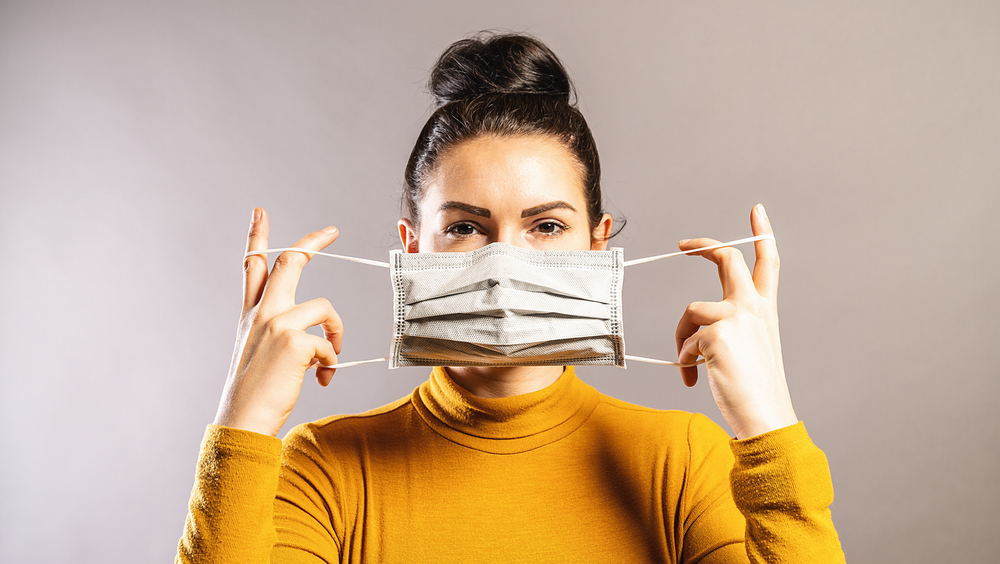New Review Finds Promise in Intermittent Fasting for Covid-19

Covid-19 arrived in early 2020 and changed the entire world. Since then, all the world’s scientists, researchers, doctors, and epidemiologists have been scrambling to develop treatments to help improve outcomes of this challenging illness. There have been many different treatment methodologies discovered in the last 10 months that have shown potential, which provides hope for the future.
Of the many papers published on the topic, one scientific review piqued our interest. It was published in October of 2020 in Immunology Letters and the topic was on the impact of intermittent fasting on Covid-19 outcomes.
This review evaluated what is known about the immune benefits of intermittent fasting and autophagy and theorizes how it could possibly be applied to help people fight off Covid-19 infection more effectively. Although this is all theory at this point, the conclusions are interesting.
Before we dive into the details, remember this is just one review. More scientific research is needed to fully understand how or if fasting can help treat or prevent Covid-19. While these results are interesting, they are not meant to substitute medical advice or other recommended public health measures like wearing a mask or social distancing.
New Review Finds Promise in Intermittent Fasting for Covid-19
Research Findings
It is well documented that people with pre-existing metabolic conditions such as high blood pressure or diabetes seem to be more vulnerable to severe outcomes of Covid-19.[1] Although much is still unknown about this new coronavirus, it is believed that the complications are caused by a severe level of inflammation and an uncontrolled immune response called a cytokine storm.[2] Eventually, this is what leads to organ shutdown and death.
Autophagy and Immunity
When the immune system gets out of control, as in the case of the cytokine storm, authors of this paper theorize that preventing this response may help decrease the risk of severe outcomes.
Autophagy, or the “cleaning” of the body’s cells can help regulate the immune system and may be just what the body needs to prevent the cytokine storm.[3] Autophagy stimulates innate immunity which helps attract other immune cells to the impacted area. It also plays a role in triggering the development of certain immune cells and regulating inflammation.
Interestingly, the Covid virus suppresses autophagy, which may contribute to the negative effects and eventual cytokine storm. Medications that induce autophagy have demonstrated potential against the infection.[4]
Fasting and Immunity
One of the easiest ways to induce autophagy is through fasting. A regular fasting protocol may help the body fight against infection.
Intermittent fasting has been shown to reduce inflammation, which helps regulate the immune response and improves metabolic markers. Weight loss that may occur with fasting also likely reduces inflammatory cytokines, which in turn may reduce overall risk of uncontrolled inflammation.
The reliance on fat stores for energy that occurs during fasting may also be protective against immune dysregulation. One of the body’s primary ketones, B-hydroxybutyrate, may help block overactivation of certain inflammatory markers.
Based on what is known about the impact of autophagy and fasting on immunity, the authors of this review believe that intermittent fasting may be a helpful approach to preventing the severe immune response caused by Covid-19. It does so by activating the immune response and priming the body to cope with future stressors.
The authors note there is no experimental evidence to support their theory at this time. They also warn that the theory discussed in this paper is for prevention of infection, not treatment. Those who currently have Covid-19 should not fast as this may put them at risk for nutritional deficiencies that can worsen disease outcomes.
In the end, the authors recommend incorporating fasting as one way to improve health, in addition to other healthy habits that support immunity. Other recommendations include an anti-inflammatory diet high in immune-supportive micronutrients, regular exercise, and meditation to help improve outcomes.





